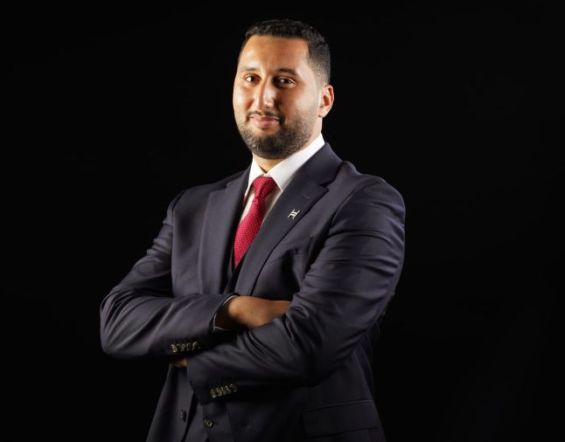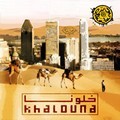Kamal Youssefi, born in Morocco, has always been driven by a desire to contribute to society. His upbringing in a family that values education, science, and self-development, coupled with his early exposure to diverse cultures through travel, has shaped his dynamic approach to life. Having grown up in Germany and settling in Switzerland, he has enriched his international experience and honed his ability to adapt and thrive in multicultural environments.
To him, Germany is a country where education crowns practicality rather than just theory. He studied computer science in Germany, focusing particularly on applied mathematics and algorithmics, parallel computing, and in-Memory data management.
Youssefi's career has taken him across Germany, Switzerland, Singapore, and the USA, where he has made significant contributions to developing and implementing emerging technologies. He has held key positions in large enterprises and global organizations, leading technology departments and spearheading digital innovation programs. His work has enabled the utilization of emerging technologies' capabilities, a testament to his expertise and commitment to technological advancement.
Throughout his professional career, he has had the privilege of interacting with pioneers and working with visionaries in the IT field, such as David Chaum (Inventor of Digital Cash), Robert Cecil Martin (Chairman of Agile Alliance), Leemon Baird (Co-Founder of Hedera Hashgraph), and other scientists and global leaders, Kamal Youssefi told Yabiladi while attending the second edition of GITEX Africa, the largest tech and startup event in Africa.
Blockchain and DLT initiatives
Youssefi worked for German multinationals software company SAP and automotive Continental, The Big 4 Ernst & Young (EY), and the Swiss Giant Swisscom Group, where he collaborated with senior executives on Blockchain and Distributed Ledger Technology (DLT) covering strategic initiatives at the international level.
Indeed, in 2016, Youssefi was part of an EY internal task force mandated by EY Global to «explore the potential of different emerging technologies and bring viable use cases that can be designed, developed, deployed, and commercialized for clients in Europe», he explained.
The Moroccan serial tech entrepreneur contributed to developing an EY wallet with a team of five other specialists. The latter «handles the transactions for digital assets», he recalls. «The very first transactions that we made were the enablement of access to Bitcoin through that wallet», he added.
Later, Youssefi embarked on a more entrepreneurial journey, founding the Swisscom Blockchain AG in 2017 in partnership with Swisscom Group, the Swiss national telecommunications provider, and the largest ICT Infrastructure provider in Switzerland.
The Joint Venture (JV) with Swisscom relied on and used Blockchain technology, which «is a shared, immutable ledger that facilitates the process of recording transactions and tracking assets in a business network».
«Blockchain records, stores, and verifies data using cryptographic algorithms and leveraging decentralized techniques to eliminate the need for third parties. Every transaction is recorded and then stored in a block on the blockchain. Each block is encrypted for protection and chained to the preceding block — hence, blockchain», he explained.
The JV developed several enterprise-grade blockchain solutions and decentralized applications covering digital wallets, self-sovereign identity, payment solutions, and asset tokenization platforms, in addition to other «solutions that are handling digital assets», he recalled.
Hedera, new public ledger platform
In 2018, Youssefi became more interested in a new DLT technology, Hedera, «a level higher than just a blockchain», he told Yabiladi. In the same year, in Switzerland, he founded the Hedera Governing Council, a decentralized governing body composed of up to 39 global organizations from diverse industries and geographies.
The council is tasked with governing the Hedera network, ensuring its stability, reliability, and continued development. Hedera is a public permissioned distributed ledger technology (DLT) network that provides a «highly secure, fast, and fair platform for decentralized applications (dApps)», he stressed.
Unlike traditional blockchain platforms, Hedera is built on a technology called Hashgraph, which offers several distinct advantages, such as speed and efficiency, security, fairness, governance, cost-effectiveness, smart contracts and tokenization, file storage, and consensus service, he told Yabiladi.
According to Youssefi, the council's mission is to guide the network's growth and evolution while maintaining a decentralized governance model. For example, Hedera can handle over 10,000 transactions per second (TPS) for its cryptocurrency operations, which is significantly higher compared to Bitcoin (approximately 7 TPS) and Ethereum (approximately 15-30 TPS in its current state), Youssefi detailed.
In addition to speed, the platform also guarantees security «through aBFT (Asynchronous Byzantine Fault Tolerance), making it highly resilient against malicious attacks and providing strong guarantees of data integrity and fairness».
It also guarantees fairness, as «transactions are timestamped and ordered fairly, preventing manipulation by any single entity». Moreover, the technology ensures «cost-effectiveness, as transaction fees on Hedera are fixed and very low, making it an attractive platform for businesses and developers».
Energy efficiency is also a plus, as Hashgraph is more energy-efficient compared to traditional proof-of-work (PoW) blockchains, he stressed.
The Hashgraph Association
Full circle back, in addition to his position on the Hedera Governing Council, Kamal Youssefi founded the Swiss Hashgraph Association, now known as The Hashgraph Association (THA). The Association runs the innovation programs and leads ecosystem development activities for the Hedera Hashgraph.
The Hashgraph Association has already launched several strategic initiatives that include innovation and venture building programs across industries, including complementary activities such as professional development and learning programs.
All the initiatives and programs aim to enhance the professional environment for the Hedera ecosystem by creating new business opportunities and maintaining the positive momentum within Hedera Ecosystem at a global scale.
Additionally, THA offers sizable investments combined with hands-on support functions to empower pioneers, innovators, entrepreneurs, and support startups, as well as assisting large corporations and government institutions to successfully launch their own decentralized solutions and applications built on Hedera.





 chargement...
chargement...













